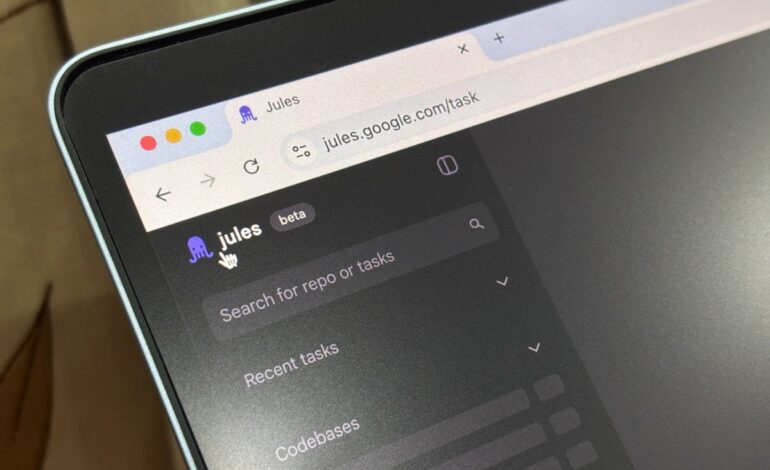Google Launches AI Coding Tool Jules, Enhances Developer Efficiency

Google has officially launched its AI coding agent, Jules, marking its transition out of beta on December 6, 2023. This development follows a public preview that began in May 2023. Powered by Gemini 2.5 Pro, Jules is designed as an asynchronous coding tool that integrates seamlessly with GitHub and allows developers to clone codebases into Google Cloud virtual machines. The tool utilizes artificial intelligence to update or fix code while developers can focus on other priorities.
The announcement was made by Kathy Korevec, director of product at Google Labs, who explained that the decision to launch Jules followed hundreds of user interface and quality updates during its beta phase. “The trajectory of where we’re going gives us a lot of confidence that Jules is around and going to be around for the long haul,” Korevec stated in an interview with TechCrunch.
With the wider rollout, Google introduced structured pricing tiers for Jules. The new plans start with an “introductory access” free option, allowing up to 15 individual tasks per day and three concurrent tasks, a reduction from the 60-task limit available during the beta. Paid subscriptions are included in the Google AI Pro and Ultra plans, priced at $19.99 and $124.99 per month, respectively, offering subscribers five and twenty times higher limits than the free plan. Korevec noted that these pricing structures were informed by user insights collected during the beta period.
Enhanced Features and User Feedback
During its beta phase, Jules was utilized by thousands of developers who completed tens of thousands of tasks, resulting in over 140,000 publicly shared code improvements. The feedback received led the Google Labs team to implement several new features, including the ability to reuse previous setups for quicker task execution, integration with GitHub issues, and support for multimodal input.
Korevec highlighted that the primary users of Jules so far have been both AI enthusiasts and professional developers. The tool operates asynchronously, distinguishing it from other AI coding tools like Cursor and Windsurf, which operate synchronously. “Jules operates like an extra set of hands… you can kick off tasks to it and then close your computer and walk away,” she explained, emphasizing its efficiency.
Recent updates have also enhanced Jules’ integration with GitHub, allowing it to open pull requests automatically, similar to its previous capability to open branches. The addition of a feature called Environment Snapshots enables users to save dependencies and install scripts as snapshots for faster and more consistent task execution.
Global Reach and Future Developments
Since its public beta launch, Jules has recorded 2.28 million visits globally, with 45% of those from mobile devices, according to data from market intelligence provider SimilarWeb. India emerged as the top market for traffic, followed by the United States and Vietnam. While Google has not disclosed specific user demographics or geographic data, Korevec noted a surge in mobile access to Jules, prompting the team to explore necessary features for mobile users, despite the absence of a dedicated mobile app.
Originally, Jules required users to have an existing codebase. However, Google quickly adapted the tool to work with empty repositories, opening it up to a broader audience, including those new to AI coding tools. This change significantly increased its usage.
Korevec confirmed that Google is also using Jules internally for project development, with plans to expand its application across more projects within the company. As the tool evolves, Google aims to refine its features based on user behavior and feedback, ensuring Jules continues to meet the needs of developers in an ever-changing technological landscape.






